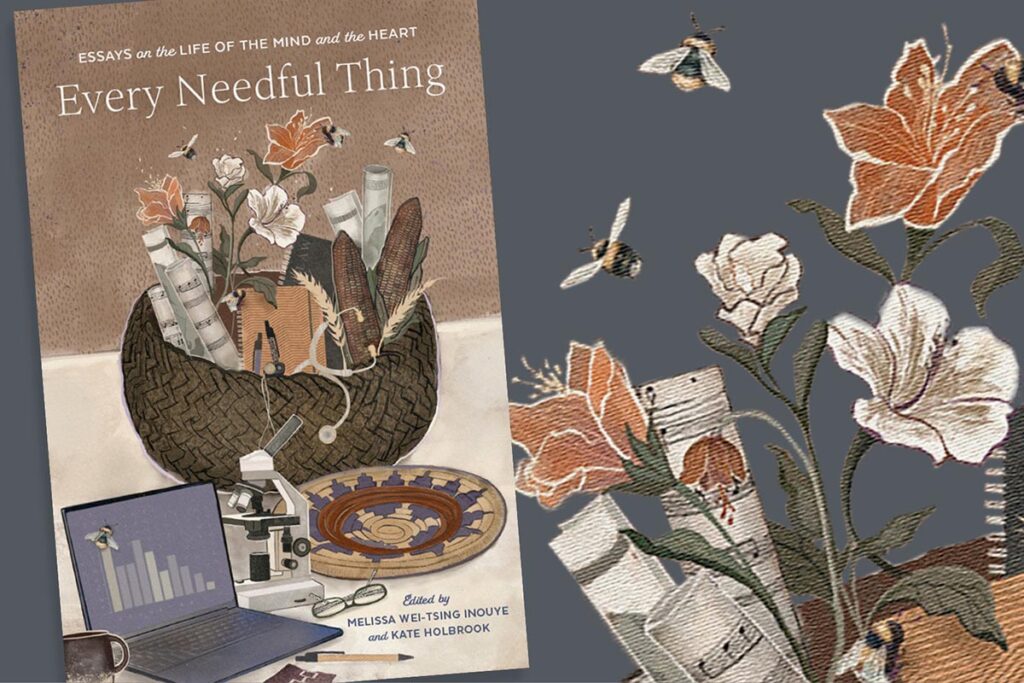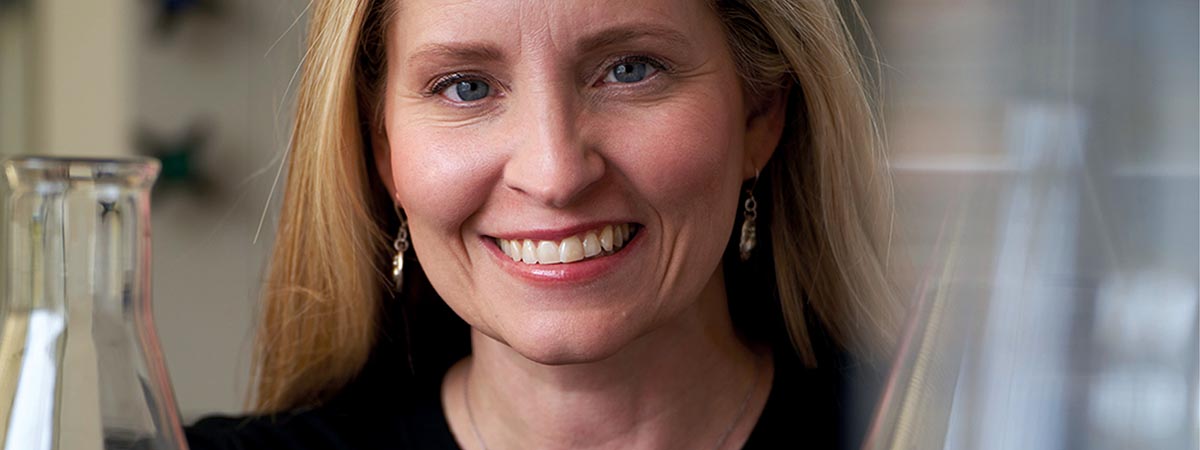Kyra N. Krakos, associate professor of biology and director of the sustainability program at Maryville University, teaches us that, yes, you can pet a bee, and science is a mix of how and why.
Kyra Krakos, PhD, stepped out of her element with a personal chapter in the new book Every Needful Thing. The book is a culmination of successful working women who are scholars in their fields writing about their faith. When asked to participate, Krakos, a scientist with a theology minor, leaned on her experience and her own spiritual journey. Her chapter is personal, and the book celebrates the uniqueness of these brave women, including a collaboration from each author on the cover art. Pollinators and plants represent her scholarship.
For Krakos, it took courage to publicly share her personal beliefs. To her, scientific writing is feeling strongly about data, but this type of personal writing is often challenging. The necessity of her sharing her thought-provoking wisdom is apparent when reading her work.
“‘Science is a how; faith is a why.’ Remember not all parts of your humanity can be measured as quantifiable data. I love my new little son. I am biologically programmed to care for him. One is the how; the other is the why. Which is true? I take joy and solace that both are true,” Krakos wrote in the chapter. She wants students to know that hows and whys are not in conflict, but opportunities.

A pre-med student once came into her office in tears. For her whole life, the student had wanted to be a doctor, but she genuinely felt cut in half between her faith and her studies during a genetics class. Krakos wants students to know that as young adults trying to figure things out for themselves, they can be a doctor and have faith if they debate the how and why — and start studying more. Sharing that there is much still to be learned in all areas of their existence usually calms students. Krakos’ methodology prevents negating science, and she finds it brings deeper understanding and opens space for faith traditions.
“I may not have wisdom to share, but I can be in the place of tension with my students,” Krakos said. “I can empathize with their pain and share the ways that I have learned to live joyfully with unresolved questions.”
She encourages students of all backgrounds to ask questions, research scientific and spiritual works and explore how faith can make them better scientists.
NOTE: This article originally appeared in the Spring/Summer 2023 issue of Maryville Magazine.
